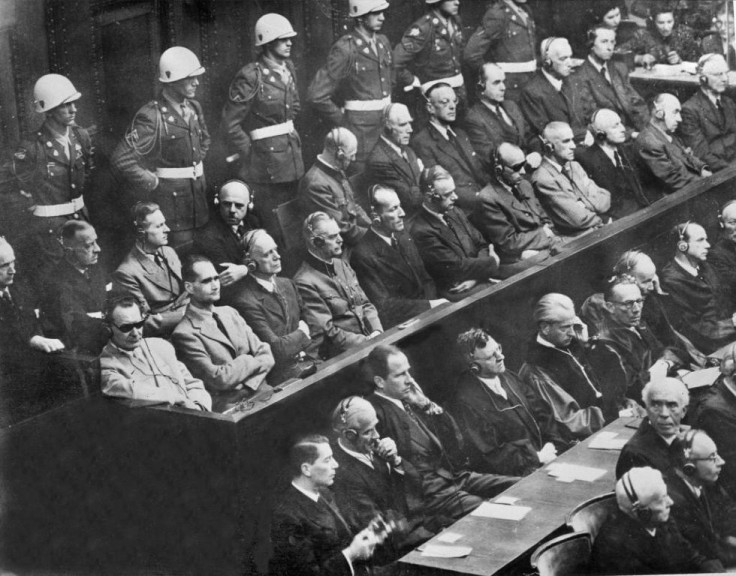'Choking On Blood': AFP's Report On Final Day Of Nuremberg Trials
On the last day of the Nuremberg trials, the top surviving Nazi leaders made their final speeches from the dock, with most trying to minimise their role in the regime's crimes.
Here is what an AFP reporter in court thought of their appeals:
NUREMBERG, August 31, 1946 (AFP) - To listen to them, each of the 21 accused seemed to be trying to paint a picture that would allow the German nation to think itself innocent of the crimes levelled against it.
These, its once great masters, clearly do not think of themselves as guilty.
Yet the accumulation of all the evidence overwhelmed them in the end. All were literally choking on blood.
What comes out of this day -- and what is really important to remember -- is that the crimes and atrocities of the Third Reich are no longer being contested by the men that history blames for them.
But it is precisely that responsibility that the defendants have spent all their efforts trying to evade.
Take Hermann Goering.
"I didn't order the extermination of the Jews... I didn't order the execution of Allied airmen... I knew nothing..."
If the second most powerful person in the Reich was so out of the loop, one wonders how Hitler's regime functioned.
But Goering, after showing this never-before-seen humility, found his old bombast again when he talked of "my Luftwaffe" and "my German people", exactly as a reigning sovereign would.
He even reused that famous phrase of Kaiser Wilhelm II (after the German defeat in World War I), claiming that "I didn't want the war".
Rudolf Hess (Hitler's deputy till he mysteriously flew to Scotland in 1941) was so much more frank. Despite his inconsistencies he finished by redeclaring his faith in Nazism.
Only he denied nothing of his past. Only he remained loyal to Hitler. Only he swore that he would do it again, even if he was put to the stake.

Joachim von Ribbentrop, the foreign minister, who followed him, used all his diplomatic finesse to try to wheedle out of his complicity.
But this was no longer the suave and handsome Ribbentrop who used to charm the gentry, but a faded shadow of his former self, who tried to sow doubt in a flat monotone voice.
Field Marshal Wilhelm Keitel, the head of the Wehrmacht's High Command, was the first of the military leaders to speak. They insisted, one after the other, that they were only loyal and disciplined soldiers in the long tradition of their caste...
Those who had eagerly awaited the declaration of Ernst Kaltenbrunner (one of the key perpetrators of the Holocaust), were disappointed.
Was he, the head of the Nazi police, the SS general and Himmler's deputy, going to be first to own up to the crimes that were surely crushing him?
No. Even Kaltenbrunner, to listen to him, was innocent of the regime's accumulated horrors...
In the end, nothing could shock those who sat through this trial.
The Nazi ideologue Alfred Rosenberg, the author of its racial theory, was able to proclaim himself a Zionist and Julius Streicher, the head of the regime's anti-Semitic mouthpiece Der Stuermer, said he was a friend of Israel.
Wilhelm Frick, the man who steered through the anti-Jewish laws, said he had a clear conscience, while Walther Funk, the old economy minister, cried hot tears for the victims of Nazism.
Fritz Sauckel, the forced labour chief and slave master of Europe, transformed himself into a loving father.
The banker and former finance minister Hjalmar Schacht, who fell out with Hitler, has probably saved his neck.
From the beginning of the trials, he tried to distance himself from his co-accused. Today more than ever, the man who tasted life in the Ravensbrueck and Flossenbuerg concentration camps after being arrested by the Gestapo, insisted on not being confused with the rest.
Will that be enough to absolve him of his very real responsibilities? (It was.)





















